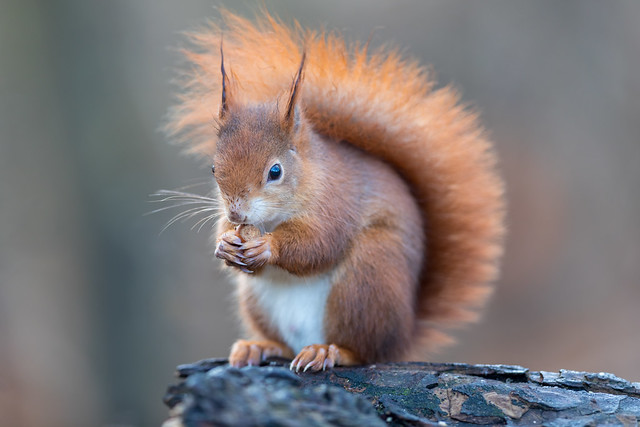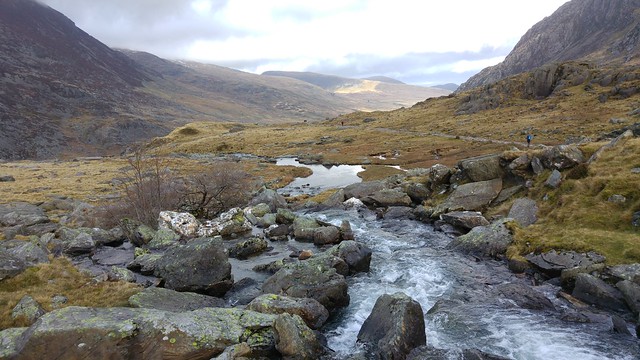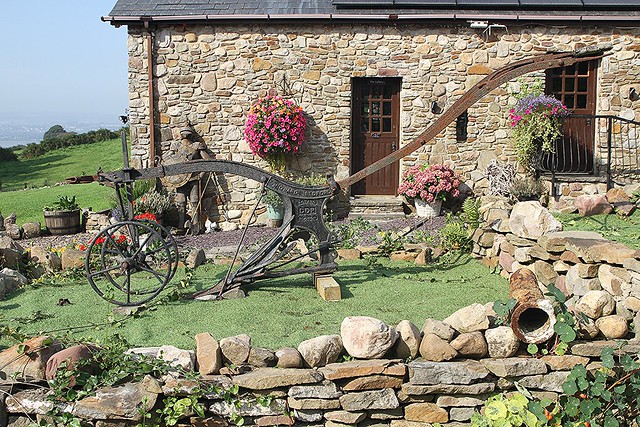Today we’re looking at the words for chew, gnaw, bite and related things in Celtic languages.
Words marked with an * are reconstructions.
| Proto-Celtic | *knāyeti = to bite, chew |
|---|---|
| Old Irish (Goídelc) | cnaïd = to gnaw |
| Middle Irish (Gaoidhealg) | cnaïd, cnaídid = to gnaw away, consume, disperse cnaí(ded), cnaidedh = gnawing, wasting cnaí(te), cnaoite, cnaeite = wasted, corroded cnám, cnáma, cnámh = (act of) gnawing, wasting, laying waste (to), ravaging con-cnaí, cocnaid = to chew, masticate, gnaw (away) |
| Irish (Gaeilge) | cnaí = gnawing, corrosion (of body), wasing, decline cnaígh = to gnaw, corrode cogain [ˈkɔɡənʲ / ˈkaɡənʲ] = to chew, masticate, gnaw, grind, slur, mutter cogaint = mastication cogantach = chewing, masticatory cogantóir = chewer, masticator guma coganta = chewing gum |
| Scottish Gaelic (Gàidhlig) | cagainn [kagɪn̪ʲ] = to chew, gnaw, masticate cagnachail [kagnəxal] = chewy cagnadh [kagnəɣ] = chewing, gnawing, masticating, mastication caigneadh [kagʲn̪ʲəɣ] = chewing, gnawing, masticating, mastication |
| Manx (Gaelg) | caigney = to chew, file, gnaw, mumble, munch, rasp, chewing caignee = gnawing, chewing credjuagh = believer, disciple, believing, believable caigneyder = chewer, gnawer, rodent |
| Middle Welsh (Kymraec) | cno = a biting, gnawing, consuming, languishing cnofa, cnoua = biting, gnawing, gripes, ache, colic, remorse cnoi, knoyn, knoi = to bite, gnaw, chew, masticate, torment, worry |
| Welsh (Cymraeg) | cno = a biting, gnawing, consuming, languishing cnoaf, cnoi [knɔi̯] = to bite, gnaw, chew, masticate, torment, worry, fret, vex, gripe, ache, ruminate, meditate cno = a biting, gnawing, consuming, languishing cno(e)ad = bite, chew, gnawing, mastication cnoawdr = gnawer, biter cnofa = biting, gnawing, gripes, ache, colic, remorse cnofil = rodent |
| Cornish (Kernewek) | knias = to chew knivil = rodent |
| Breton (Brezhoneg) | chagiñ [ˈkreː.dĩ] = to chew chaok [ʃok] = chewing chaokat [ˈʃokːat] = to chew, eat, masticate chaoker = chewer, masticator, big eater chaokerezh = mastication |
Etymology: from Proto-Indo-European *kneh₂- (to bite, chew, scratch, scrape) [source]. Words from the same PIE roots include Nut (groove, slit, slot) in German and knóti (to peel) in Lithuanian [source].
| Proto-Celtic | *brozdos, *brasdu = point, tip |
|---|---|
| Old Irish (Goídelc) | brot [brod] = goad |
| Middle Irish (Gaoidhealg) | brot, brud, brad = goad, spike brotad(h) = act of goading, urging brotchú = watchdog, bloodhound, herd-dog, mastiff |
| Irish (Gaeilge) | brod = goad broideadh = = to prod, nudge, bite |
| Scottish Gaelic (Gàidhlig) | brod [brɔd] = goad, prickle, sting strong>brodadh [brodəɣ] = rousing, stirring, goading, poking, prompt |
| Manx (Gaelg) | brod = goad, jab, nudge, prick, spur, stimulus broddagh = jabbing, stab wound broddey = to goad, jab, nudge, poke |
| Middle Welsh (Kymraec) | brath [braːθ] = a bite, biting brathu, brathv, brathy = to bite, sting, wound, pierce brathedig, brathedic = bitten, wounded, stabbed, pierced |
| Welsh (Cymraeg) | brath [braːθ] = a bite, biting, stinging, prick, scratch, wounding, piercing, stabbing, wound, injury brathu = to bite, sting, wound, pierce brathedig = bitten, wounded, stabbed, pierced brathgi = biting dog, dog given to snapping, surly man brath(i)ad = a bite, biting, sting, wounding brathiadol = biting, hurtful |
| Middle Cornish (Cernewec) | brathcy = a mastiff, hound (“a biting dog”) |
| Cornish (Kernewek) | brath = bite bratha = to bite brathek = caustic |
Etymology: from Proto-Indo-European *bʰresdʰh₁-, from *bʰers- (top, tip, point) [source]. Words from the same PIE roots possibly include barley, bristle and brush in English, barr (pine needles) in Icelandic, farine (flour, feed) in French, bara (bread) in Welsh, barr (tip, head, point, top, summit) in Irish, and Barsch (perch [fish]) in German [source].
| Proto-Celtic | *gramman, *gremmen- = seizure, grasp |
|---|---|
| Old Irish (Goídelc) | greimm, graimm [ˈɡʲr͈ʲemʲ] = grasp, authority, power |
| Middle Irish (Gaoidhealg) | greimm, graimm = grasp, authority, sway, power, seizure, hold, grasp, bond, obligation, duty, service, profit, use, advantage gremanach, greamanach = biting gremmaigid, greamaighid = to hold fast, cleave, stick, seize, grasp, obtain, secure |
| Irish (Gaeilge) | greim [ɟɾʲəimʲ / ɟɾʲɪmʲ] = to grip, grasp, hold |
| Scottish Gaelic (Gàidhlig) | greim [grʲɤim =] = bit(e), morsel, clutch, grasp, grip, hold, catch, stitc, seizure, pneumonia greimeachadh [grʲeməxəɣ] = gripping, grasping, clutching, clinging, grappling greimean [grʲeman] = small bite, small morsel |
| Manx (Gaelg) | greim = bite, catch, clutch, grab, grapple, grasp, grip, hold, snatch greimmagh = clutching, grasping, gripping, snappy, sticky greimmey = to bite, catch, clutch, grab, grip, hold |
Etymology: from Proto-Indo-European *gʰrebʰ- (to seize, grab, dig, rake) [source]. Words from the same PIE roots possibly include grab, grave, groove and grub in English, graven (to dig, search for information) in Dutch, graben (to dig, burrow) in German, and grabić (to rake, rob, plunder) in Polish [source].
Sources: Wiktionary, Etymological Dictionary Of Proto Celtic, In Dúil Bélrai English – Old Irish glossary, eDIL – Electronic Dictionary of the Irish Language, Teanglann.ie, Am Faclair Beag, An etymological dictionary of the Gaelic language, Fockleyreen: Manx – English Dictionary, Online Manx Dictionary, Gaelg Corpus, Geiriadur Prifysgol Cymru, Lexicon cornu-britannicum : a dictionary of the ancient Celtic language of Cornwall, Gerlyver Kernewek, Devri : Le dictionaire diachronique du breton, Geriafurch, TermOfis














